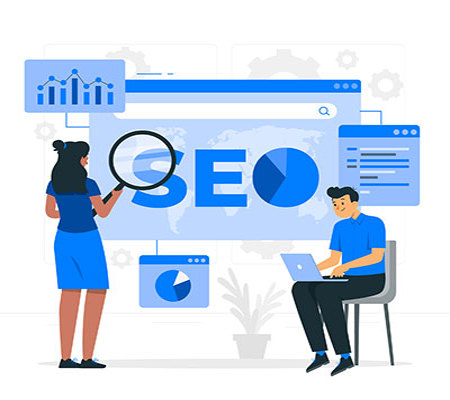Best SEO Tips for Website

Best SEO Tips for Website
Introduction
SEO, or Search Engine Optimization, is a well-known term in the digital web world. Optimizing a website for search engines is of utmost importance as high rankings in search results lead to attracting organic traffic and achieving success in the online realm. However, the world of SEO can be complex and challenging for some businesses and webmasters.
In this blog post we will introduce the best tips and guidelines for website optimization to improve search engine rankings. From selecting relevant keywords and optimizing content to structuring links and enhancing loading speed, all aspects of SEO will be examined.
Part One: Selecting Relevant and Targeted Keywords
One of the most crucial SEO tips is selecting appropriate and targeted keywords for each web page. Keywords are words or phrases that users search for on search engines to find relevant content or products. By choosing the right keywords and strategically using them in content and titles, increased organic traffic and improved search engine rankings can be achieved.
1. Research and Analysis: To select the best keywords, it is advisable to conduct keyword research using tools and analyze competitor's research. Identifying keywords that bring the most traffic and visits to your website is vital.
2. Relevance to Content: After selecting keywords, ensure that your content aligns with them. High-quality and relevant content enhances user experience and gains SEO recognition.
Part Two: Optimizing Content and Writing SEO-Friendly
Content optimization is another essential factor with significant impact on website ranking in search engines. High-quality, relevant, and authentic content signals to search engines that your website is valuable and trustworthy.
1. Original and Unique Content: Original and unique content holds a special appeal and improves the reading experience. The use of copied content from other sites is not beneficial and may have a negative impact on ranking.
2. Keyword Usage: Use selected keywords appropriately and naturally in the content and titles. Avoid excessive use of keywords and use them in a targeted manner.
3. Use of Headings and Subheadings: Headings and subheadings can aid in content clarification and page organization. Properly using H1 to H6 tags can assist in content ranking.
Part Three: Improving Link and URL Structure
Link and URL structure are also vital factors in website SEO. A well-organized link structure aids in guiding users seamlessly from one page to another and SEO-friendly URLs contribute to attracting organic traffic.
1. Relevant Link Structure: Design the link structure in a logical and relevant manner. Links should be appropriately related to one another and facilitate smooth navigation for users.
2. Proper Naming: Provide relevant names for links and URLs that align with content and target keywords. Using user-friendly and understandable naming can provide SEO advantages.
Part Four: Enhancing Website Loading Speed
Website loading speed is a critical factor for SEO and user experience. Websites with faster loading times are better perceived and attract more users.
1. Image Optimization: Use appropriately sized and compressed images and utilize Alt tags to describe images, contributing to improved loading speed.
2. Resource Compression: Compressing CSS, JavaScript, and HTML files can enhance website loading speed significantly.
3. Use of Cache Mechanisms: Employing caching mechanisms in the server and browser can considerably reduce page loading times.
Conclusion
The best SEO tips for website include a combination of essential factors that must be simultaneously addressed. From selecting relevant keywords and optimizing content to improving link structure and enhancing loading speed, all these actions contribute to improving website visibility in search engines and attracting organic traffic. By implementing the best SEO practices, your website will transform into a valuable information resource for users, allowing you to benefit from increased organic traffic and better rankings in search engine results.